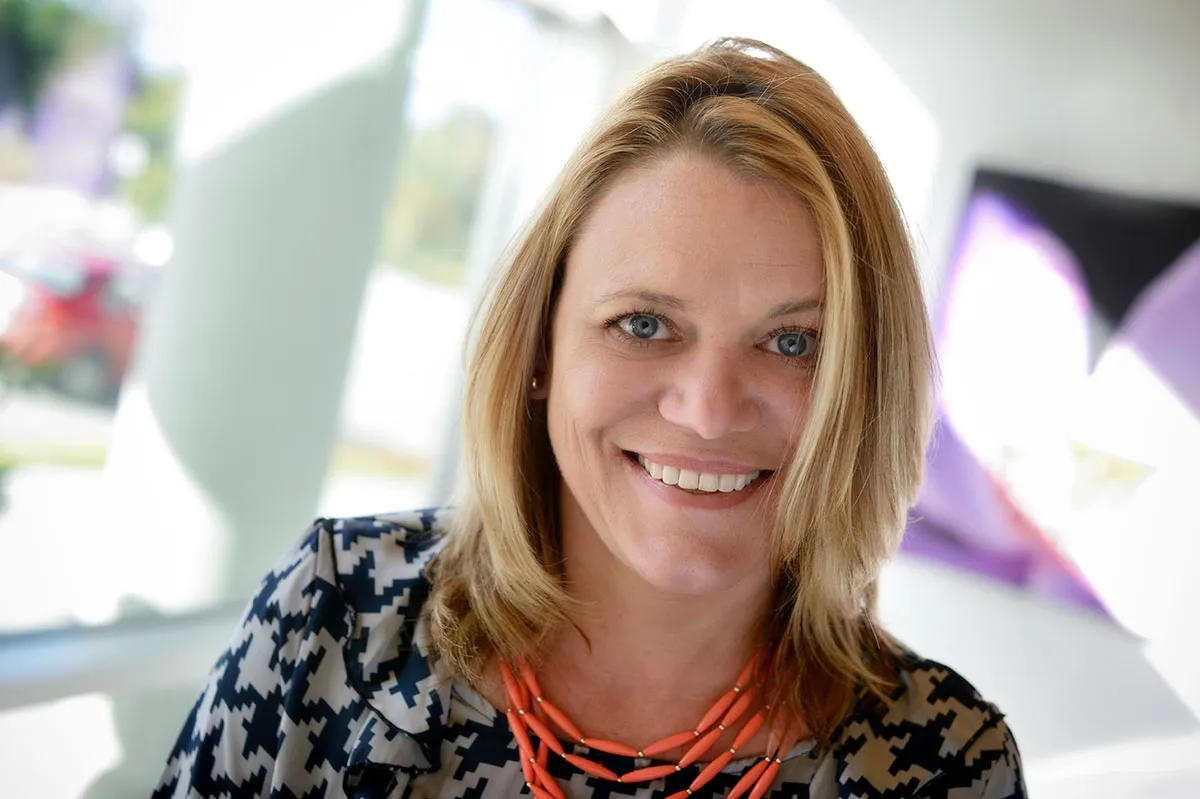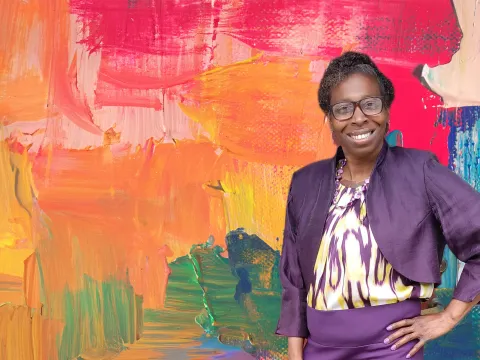- AdventHealth Foundation Central Florida
Choose the health content that’s right for you, and get it delivered right in your inbox.

Thirty-five years ago, Keri Whitaker came to then Florida Hospital Orlando for answers. 'What was wrong with her? Why was she so exhausted and sleeping through classes? Why did she feel so bad and why was she losing weight?' She was just 17 and knew something was not right. After being admitted, she had her answer- she had type 1 diabetes.
As a young adult and five years into her diagnosis, Keri knew what she wanted to do with her life. She wrote an essay to win a Florida Hospital nursing scholarship contest. "I wrote that I wanted to be a registered nurse that works with diabetic patients, because I have diabetes."
And as the saying goes, 'So it was written, so it shall be done.'
Fast-forward to 2022, and she's still coming to the same hospital, now called AdventHealth, not only as a patient but as someone on a mission to help find answers for other people with T1D. "I feel like my diabetes gives me an edge. Patients like to work with providers that know firsthand what they're going through."
Keri is a research nurse at the Translational Research Institute and is based out of the AdventHealth Diabetes Institute. She works to get people 18+ into diabetes research trials. "I'm spending a lot of time just talking to them, finding out more about how they live, how they treat their diabetes, how they've lived with their diabetes. I've got patients who have had diabetes for 65 years, so I'm learning stuff from them too."
Not only does she educate patients about medication and device studies, but she's also a firm believer in signing herself up. "I do every chance I get." From questionnaires to giving blood samples to testing Dexcom patches, Keri believes it's all important. "I wouldn't be where I am today as a diabetic person if there wasn't research."
After talking to hundreds of patients, there are a few concerns that people ask her about when it comes to participating in clinical trials. The most common concern is will their DNA be collected for secret experiments? While that may happen in Hollywood movies, secret experiments are not a part of clinical research. Keri adds “This would never happen! Experiments of any kind are clearly laid out in an informed consent that is thoroughly discussed with the patient by both the study doctor and study nurse.”
Secondly, patients worry that taking part in a study will be too time-consuming. That is typically not the case. Most outpatient studies are done with very few office visits, and some allow for virtual visits. And the benefits can be life changing. "It may allow the patient to 'test drive' a new therapy or device without cost to them."
Most importantly, Keri wants people to realize that taking part in a study is not just for them. The knowledge and discoveries may help their children or grandchildren. "I want them to know that being in a study may or may not help them personally, but for sure, it will help future generations with this disease."
Keri is certain that the research she's part of now will have a significant impact in the future and is looking forward to continuing to do what she loves. "I've been in research for 16 years, and I love the fact that I'm doing science every day and that I'm doing it with my people. I can speak their language; I can walk their walk."
And she has no plans of stopping. "I have finally, over my 26-year nursing career, ended up where I belong, where I should be."



